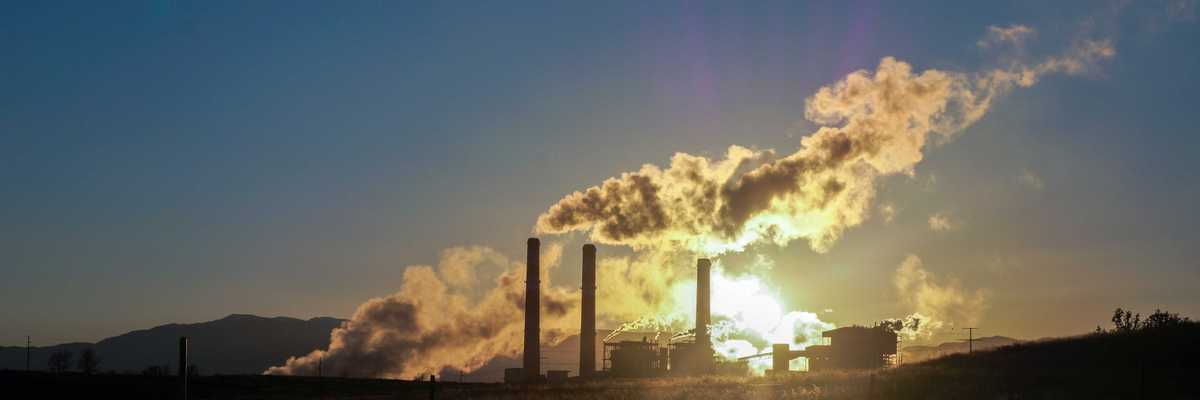fossil fuel financing
Nuns push Wall Street for environmental justice through shareholder advocacy
Faith-based advocates urge Citibank to respect Indigenous rights.
In short:
- Sister Susan Francois emphasized the Catholic Church's historical role in colonization while advocating for Indigenous rights at Citibank's shareholder meeting.
- Despite the failure of their resolution for the third year, the Sisters of St. Joseph of Peace plan to continue their advocacy against financing harmful fossil fuel projects.
- Citibank's recent report on Indigenous peoples' rights was criticized for not meeting international standards, highlighting ongoing concerns over corporate responsibility.
Key quote:
“This is a clear message to the bank that human rights violations are bad for business.”
— Sister Susan Francois, Treasurer of the Sisters of St. Joseph of Peace
Why this matters:
The nuns’ persistent advocacy reinforces the role of ethical investing in combating climate change and supporting Indigenous communities. Read more: What would a just energy transition look like for US tribes?
Oil companies leverage academic partnerships to influence climate change action
Oil companies are strategically partnering with universities to influence climate change research and policy, recently revealed documents show.
In short:
- Major oil companies have donated millions to prestigious universities to shape research and gain favorable insights for their business interests.
- Congressional investigators released documents showing that these partnerships were designed to influence perceptions of oil and gas companies in climate debates.
- Critics argue that the industry is leveraging its academic relationships to minimize its responsibility for climate change and avoid meaningful emission reductions.
Key quote:
“The evidence uncovered by Oversight Committee Democrats shows that Big Oil has run campaigns to confuse and mislead the public while working unceasingly to lock down a fossil fuel future.”
— Jamie Raskin, Democratic Representative
Why this matters:
Oil companies are trying to control the narrative around climate change by shaping academic research to align with their interests, undermining independent science and influencing policy. Read more: How the “Halliburton Loophole” lets fracking companies pollute water with no oversight.
US banks' nuanced stance on funding coal projects with emissions abatement
Many U.S. banks continue to finance coal plants that adopt emissions abatement technologies, despite a global trend towards divesting from coal.
In short:
- The U.S. has joined the Powering Past Coal Alliance, but with a caveat for plants implementing emissions abatement technologies.
- Critics argue that carbon capture and storage (CCS), a favored abatement method, may not effectively reduce emissions and could extend the lifespan of coal plants.
- Despite the increasing financial risk, four major U.S. banks have policies allowing funding for coal plants employing CCS, contrasting with global divestment trends.
Key quote:
"The big risk is that carbon capture and storage might be used as an excuse to prolong the lives of coal plants that should be closed very soon now."
— Yann Louvel, policy analyst for Reclaim Finance
Why this matters:
The reliance on unproven carbon capture technology by major banks poses a challenge to achieving climate goals, potentially undermining efforts to reduce dependency on coal. In spite of abundant damning evidence attesting to the negative planetary health impacts of every aspect of coal production; coal mining, coal processing and coal burning continues to attract financing.
Norway boosts oil production, defying environmental concerns
In a move that contradicts its environmental image, Norway has significantly increased oil drilling licenses, indicating a surge in hydrocarbon extraction.
In short:
- Norway awarded 62 new oil and gas drilling licenses, a notable increase from the 47 licenses in 2022.
- This expansion signifies Norway's highest level of oil and gas production since 2010, with peak production expected in 2025.
- Despite environmental concerns, the Norwegian government emphasizes the country's role as a stable energy supplier and job creator.
Key quote:
“This is important for both employment and value creation, as well as for facilitating Norway’s role as a stable energy supplier to Europe."
— Terje Aasland, Norway’s Minister of Energy
Visit EHN's energy section for more top news about energy, climate and health.
Norway expands oil drilling, boosts production
The petrostate awards another 62 drilling licenses to the oil and gas industry and approaches a 15-year high in hydrocarbon extraction.
Shell faces shareholder rebellion over climate activist resolution
Investors including UK’s biggest pension scheme agree to back call for oil firm to set bigger emissions targets.









